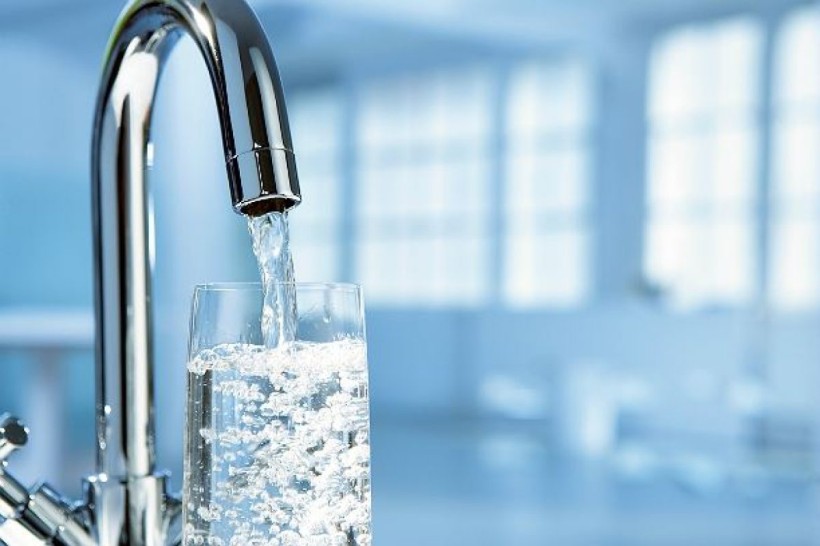
Water plays a huge role not only in human life but also in all living things on our planet, and as is known, life without water is impossible. In recent years, there has been an increase in the pollution of groundwater with nitrates. The non-compliance of drinking water with sanitary and hygienic requirements is one of the main reasons for the increase in morbidity among the population related to chemical water pollution.
One of the non-infectious diseases associated with the consumption of water from underground sources is water-nitrate methemoglobinemia. This pathology occurs when the permissible standards for nitrate content in water are exceeded. It poses a particular danger to infants and young children under 3 years of age, as their bodies are more sensitive to the effects of nitrates. Water-nitrate methemoglobinemia involves oxygen starvation of tissues (hypoxia), disruption of oxygen transport in the blood, as well as suppression of the activity of enzyme systems involved in tissue respiration processes. When a high level of methemoglobin accumulates in the blood, cyanosis develops in the body. The most sensitive to nitrate content in drinking water are children under 3 years old, especially infants under 1 year of age, who are fed cereals, vegetable juices, and milk formulas prepared with water containing high levels of nitrates (over 50 mg/dm³). In children during the first three years of life, the development of water-nitrate methemoglobinemia is associated with the imperfection of the body's enzyme systems and the biochemical processes occurring in it. Methemoglobinemia is most often observed in people living in rural areas who use water from wells that have not undergone annual cleaning and disinfection. According to statistical data, 67% of the rural population of Donetsk region consumes water from non-centralized water supply sources, namely from public wells and individual wells located on private homesteads.
Monitoring of drinking water quality.
The STATE INSTITUTION "DONETSK REGIONAL CENTER FOR DISEASE CONTROL AND PREVENTION OF THE MINISTRY OF HEALTH OF UKRAINE" conducts monitoring of drinking water supply in the settlements of Donetsk region, according to the annual work plan. Monitoring of drinking water quality is carried out from underground water supply sources, including public and individual wells, as well as artesian wells (according to sanitary-chemical and microbiological indicators).
In accordance with the requirements of the protocol of the meeting of the Cabinet of Ministers of Ukraine dated May 19, 2010, and the instruction of the Ministry of Health of Ukraine dated February 21, 2017, "On measures to prevent the occurrence of water-nitrate methemoglobinemia in children," the State Institution "DONETSK REGIONAL CENTER FOR DISEASE CONTROL AND PREVENTION OF THE MINISTRY OF HEALTH" conducts continuous monitoring of nitrate content in water from underground water supply sources.
Research results for the II quarter of 2025.
During the II quarter of 2025, branches of the State Institution "DONETSK REGIONAL CENTER FOR DISEASE CONTROL AND PREVENTION OF THE MINISTRY OF HEALTH" studied drinking water from underground water supply sources for the population with the following results:
Public wells:
- 83 water samples were studied according to sanitary-chemical indicators. Of these, 22 samples (61.9%) did not meet the standards. In particular, 24 water samples were tested for nitrates, and in 10 samples (44.66%) an excess of nitrate content was found.
- 24 water samples were studied according to microbiological indicators. Of these, 24 samples (37.50%) were found to be non-standard.
Individual wells:
- 22 water samples were studied according to sanitary-chemical indicators. Of these, 19 samples (86.38%) did not meet the standards. In particular, in 10 samples (45.45%) an excess of nitrate content was recorded.
- 19 water samples were studied according to microbiological indicators. Of these, 11 samples (57.89%) were found to be non-standard.
Exceeding the standards for nitrate content in drinking water from underground water supply sources was registered in the following areas of Donetsk region:
- Public wells: Dobropil Territorial Community.
- Individual wells: the city of Druzhkivka, the city of Sloviansk, the city of Kramatorsk in the Kramatorsk district.
According to the monitoring results, regarding the exceedance of nitrate content standards in drinking water, specialists from the branches of the State Institution "DONETSK REGIONAL CENTER FOR DISEASE CONTROL AND PREVENTION OF THE MINISTRY OF HEALTH" inform local self-government bodies, territorial divisions of the State Service of Ukraine on Food Safety and Consumer Protection, and conduct sanitary-educational work.
Recommendations for the prevention of water-nitrate methemoglobinemia.
To prevent the negative impact of nitrates on the health of the population, to prevent the occurrence of poisonings and related diseases, it is necessary to:
- Not use drinking water from wells and boreholes where the nitrate content exceeds the normative indicators. For cooking and drinking purposes, for children under 3 years old, use packaged (bottled) water.
- Adhere to hygiene requirements when arranging and operating wells, that is, wells must be cleaned and disinfected at least once a year.
- Properly store manure and waste on private land plots.
- The area around the well should be kept clean.
- If possible, breastfeed infants during the first year of life for as long as possible, as the nitrate content in breast milk is low, even if the mother consumes water with a high concentration of nitrates.
The laboratories of the branches of the STATE INSTITUTION "DONETSK REGIONAL CENTER FOR DISEASE CONTROL AND PREVENTION OF THE MINISTRY OF HEALTH OF UKRAINE," located in the cities of Kramatorsk, Druzhkivka, Sloviansk, and Dobropillia, determine the concentration of nitrates in drinking water upon request.
Pollution of drinking water with nitrates requires increased attention from both local authorities and the population, in order to carry out preventive measures to reduce the nitrate content in drinking water from non-centralized water supply sources.
State Institution "DONETSK REGIONAL CENTER FOR DISEASE CONTROL AND PREVENTION OF THE MINISTRY OF HEALTH OF UKRAINE"